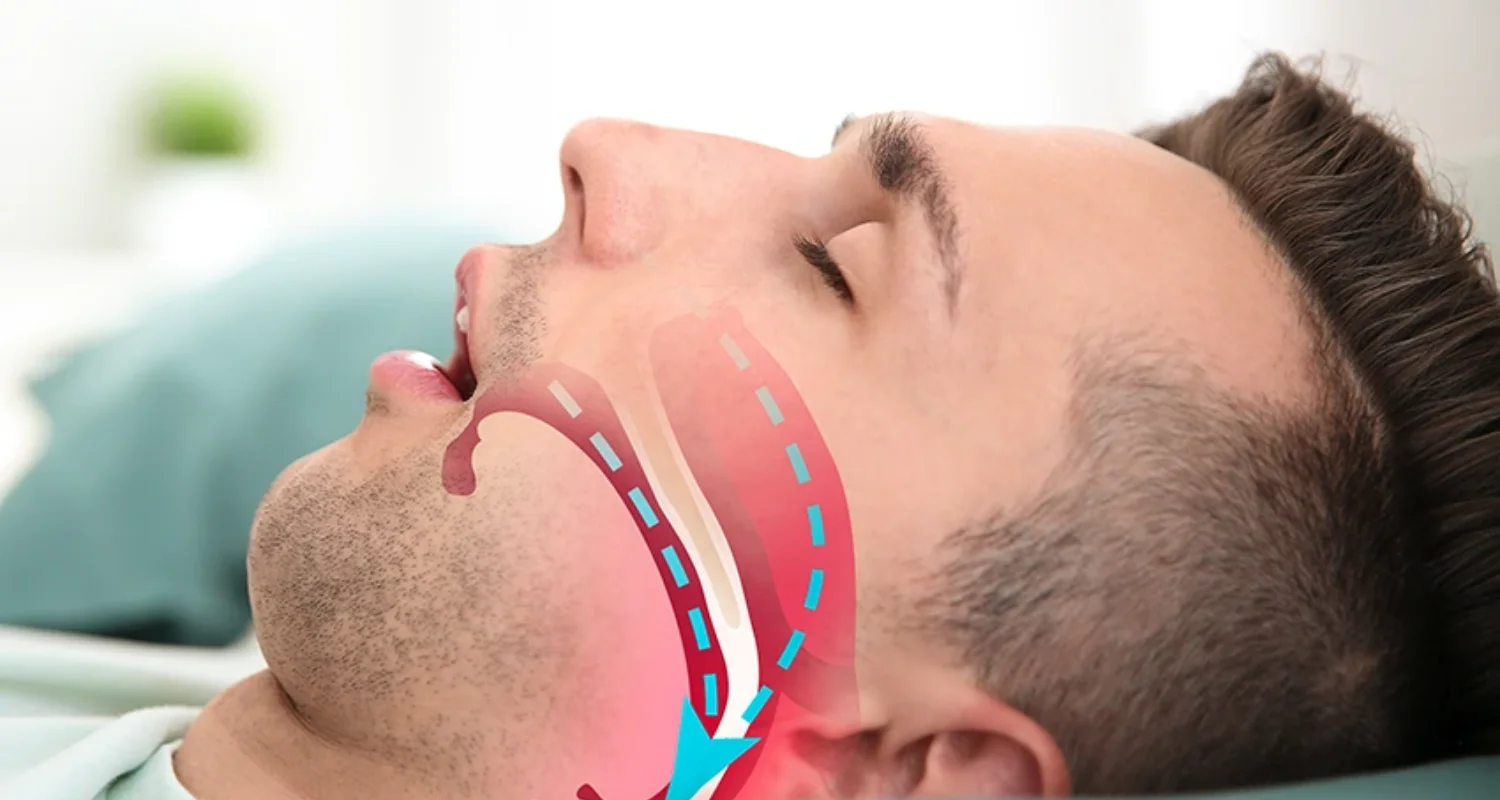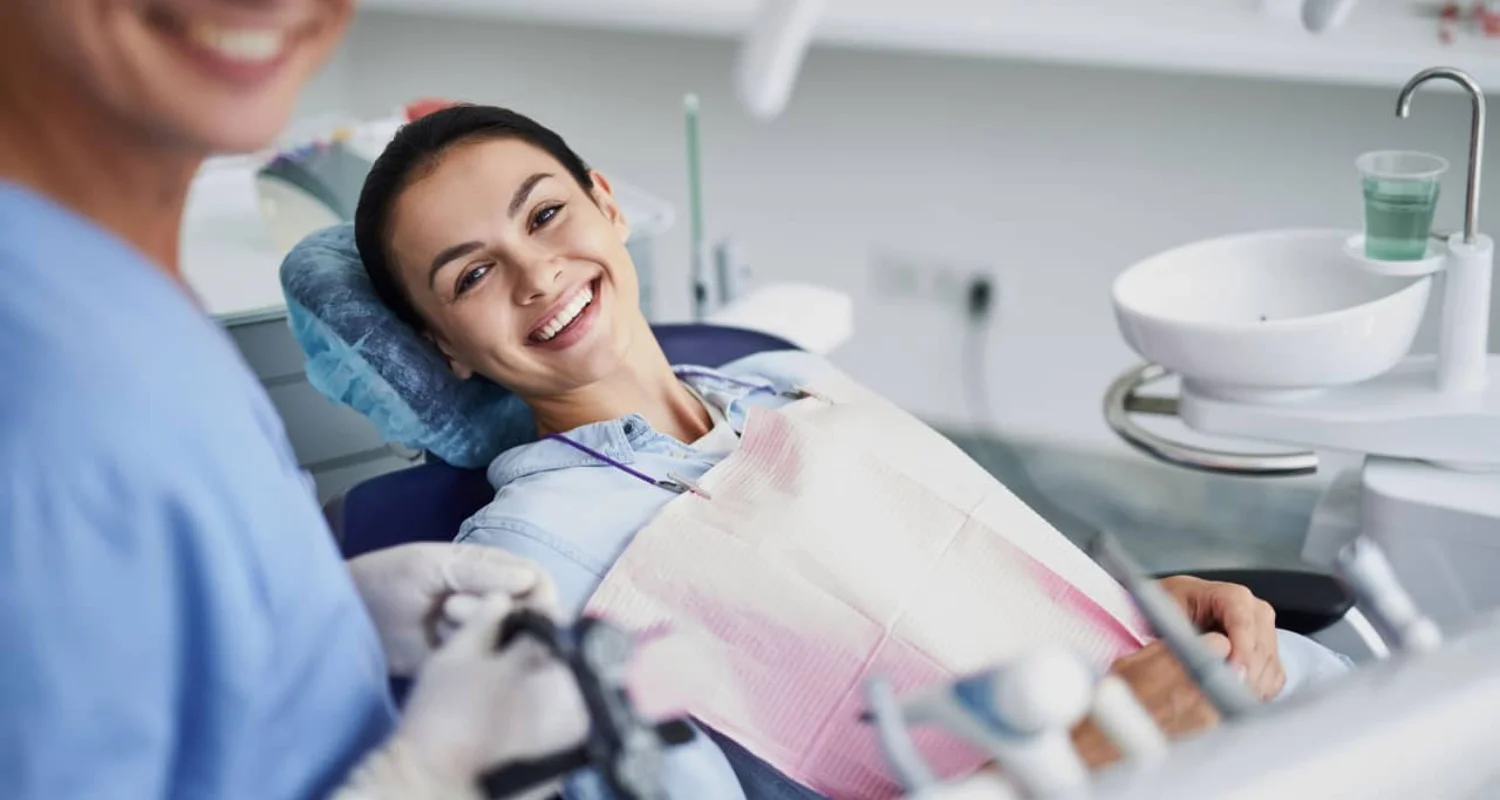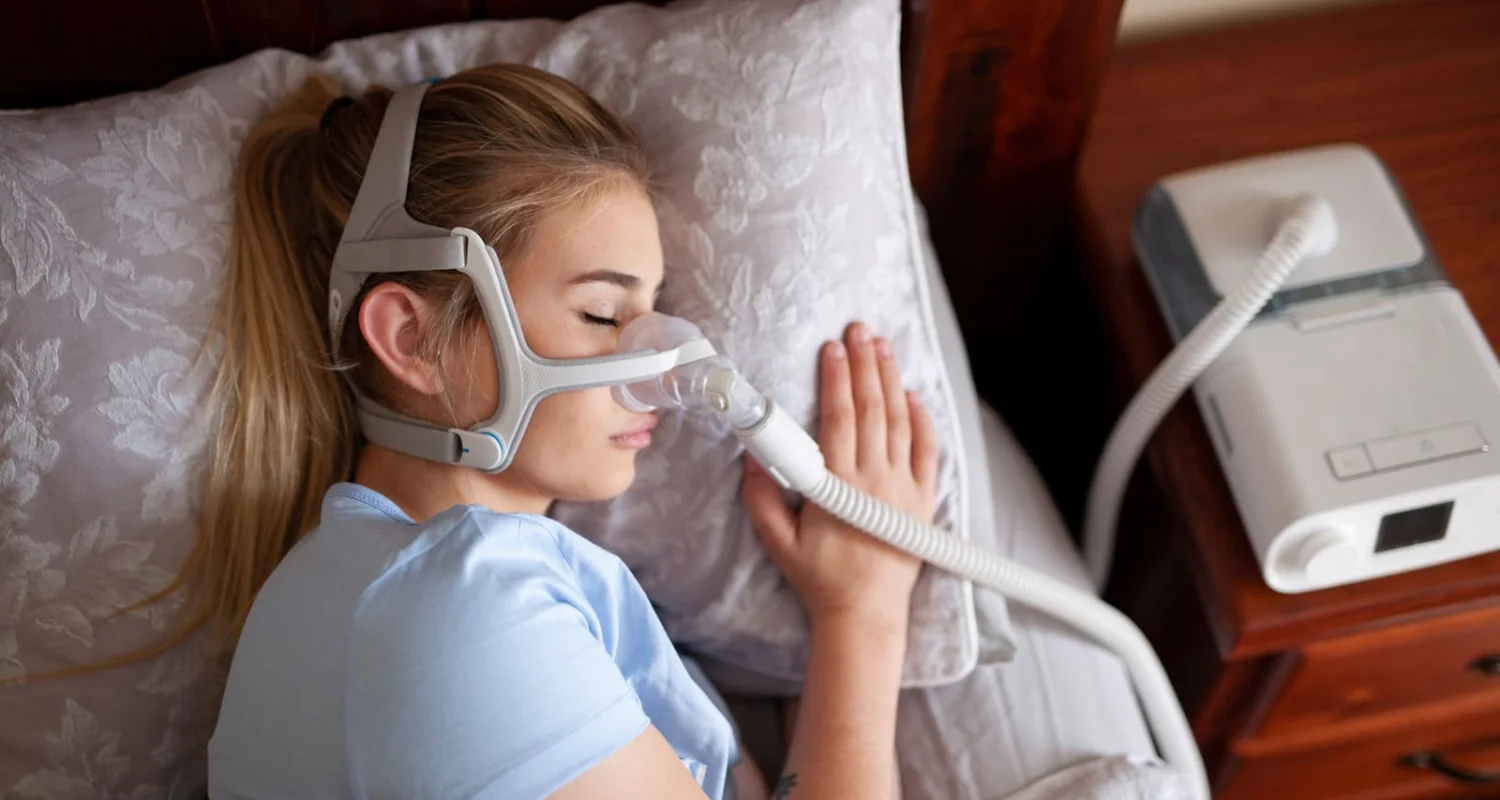Last Updated on: 15th December 2025, 11:18 am
Do you know the link between sleep apnea and oral health?
Sleep apnea is a breathing disorder that disrupts airflow during sleep, causing repeated pauses in breathing and severely affecting the quality of rest. Although it is related to respiratory problems, this disorder can also have significant effects on oral health, influencing aspects such as dental alignment, tooth wear, and oral sequence. In people with sleep apnea, interrupted breathing and lack of oxygen can cause the jaw to move unusually during the night, increasing the risk of temporomandibular disorders and bruxism.
In addition, frequent dry mouth, common in those with sleep apnea, increases the risk of cavities and periodontal disease, since saliva is crucial to maintaining the balance of bacteria in the mouth and protecting tooth enamel. In this article, we will explore how sleep apnea impacts oral health and what treatments, both for apnea and associated dental problems, can help improve the quality of life of those who suffer from this disorder.
What is the relationship between sleep apnea and oral health?

Sleep apnea is a breathing disorder in which you experience repeated pauses in breathing while you sleep, due to a partial or complete blockage of the upper airways. This causes interruptions in sleep and decreases oxygenation in the body. Often, people with sleep apnea wake up briefly many times during the night without realizing it.
When you have sleep apnea, symptoms at the oral level may be: dry mouth, bacterial growth, sore throat, gum disease, bruxism, temporomandibular joint disorders.
Problems associated with sleep apnea and oral health
The most common problems that can occur in the mouth and throat when having sleep apnea are the following:
Dry mouth and increased risk of cavities
Sleep apnea causes mouth breathing, which can cause decreased salivary flow and, as a consequence, dry mouth. It also increases the bacterial load in the cavity, a higher risk of tooth decay and bad breath.
Grinding of teeth (bruxism)
Grinding teeth can cause headaches, neck and jaw pain. This occurs because at the moment sleep apnea begins, the jaw reflexly clenches the teeth to avoid obstructing the airways. This grinding causes pain in the temporomandibular joint and radiates pain to the head and neck, as a consequence, there is also tooth wear.
Gum disease and inflammation
Sleep apnea decreases oxygen levels and reduces salivary flow, contributing to gum inflammation. Lack of saliva leaves the mouth dry, eliminating its protective effect against bacteria, which increases the risk of gingivitis and periodontitis in those who suffer from this condition.
Sleep apnea and oral health: how to identify if you suffer from it?

To identify sleep apnea, some symptoms are present, some are more obvious than others; the most detected are the following:
● Excessive daytime sleepiness or fatigue during the day.
● Anxiety or depression.
● Loud snoring.
● Dry mouth and sore throat.
● Breathing stops several times at night between 5 – 30 times per hour.
● Decreases in attention and concentration.
● Forgetfulness.
To evaluate possible signs of sleep apnea at home, there are useful applications and devices:
● Monitoring applications: They record snoring and sleep patterns, detecting possible interruptions and pauses in breathing.
● Tracking devices: some monitor heart rate, breathing and sleep patterns. Others are placed under the mattress, detect snoring and assess the risk of sleep apnea.
These tools offer a preliminary analysis, but it is important to consult a professional to confirm the diagnosis.
How dentists can help diagnose the relationship between sleep apnea and oral health

A visit to the dentist identifies the early signs of sleep apnea, a condition often detected through dental health indicators. Dentists are trained to look for symptoms such as tooth wear from teeth grinding.
To confirm a diagnosis and determine the best course of action, dentists may suggest a combination of tests and treatments:
● Referral for sleep studies: In cases where more data is needed, dentists may refer patients for sleep studies at specialized labs. These studies use sensors placed on the head and neck to collect detailed data about sleep and breathing, especially when basic in-office assessments don’t provide enough information.
● Custom oral appliances for treatment: Dentists may fit patients with mandibular advancement devices (MADs), designed to gently move the lower jaw forward, keeping the airway open during sleep. These devices are customized for comfort and have been shown to be effective in reducing symptoms of mild to moderate sleep apnea.
Through early detection, referrals for sleep studies, and the provision of customized oral appliances, dentists play a crucial role in diagnosing and treating sleep apnea, improving patients’ sleep quality and overall health.
It is advisable to visit the dentist if you have symptoms of sleep apnea, such as loud snoring, interrupted sleep, or constant daytime fatigue. A specialist dentist can identify signs in your mouth related to apnea, such as tooth wear or dry mouth, and offer treatments, such as mandibular advancement devices, which help keep your airway open while you sleep. In addition, your dentist may refer you to a sleep specialist for further evaluation if necessary.
Frequently Asked Questions
What are the causes and treatment for sleep apnea?
Sleep apnea is primarily caused by obstructions in the upper airway during sleep, leading to interrupted breathing and poor oxygen flow. Contributing factors include obesity, genetics, and anatomical issues. Treatments range from lifestyle changes and using CPAP machines to oral appliances provided by dentists, which help maintain an open airway during sleep.
Is there a correlation between sleep apnea and oral health issues?
Yes, sleep apnea is closely related to various oral health issues, including dry mouth, increased cavities, gum inflammation, and bruxism (teeth grinding). Reduced oxygen and saliva flow during apnea episodes can heighten the risk of gum disease and enamel erosion.
Does sleep apnea affect oral health?
Absolutely. Sleep apnea often leads to dry mouth due to mouth breathing, which reduces saliva needed to protect against bacteria, increasing the risk of decay and gum disease. Additionally, the jaw’s grinding response to airway obstruction can cause tooth wear and jaw pain.
Do dentists treat sleep apnea?
Yes, dentists play a critical role in diagnosing and treating sleep apnea. They can provide mandibular advancement devices (MADs) to keep the airway open and refer patients for sleep studies if further evaluation is needed.
What dental signs indicate sleep apnea?
Common dental signs include worn tooth surfaces from grinding, a dry mouth, and inflamed or receding gums. Dentists often detect these symptoms and may recommend sleep apnea screening for at-risk patients.
Share
References
1. Barhum, L. (2023, 24 octubre). The Connection Between Sleep Apnea and Oral Health. Verywell Health. https://www.verywellhealth.com/sleep-apnea-and-oral-health-4587690
2. Berggren, K., Broström, A., Firestone, A., Wright, B., Josefsson, E., & Lindmark, U. (2021). Oral health problems linked to obstructive sleep apnea are not always recognized within dental care—As described by dental professionals. Clinical And Experimental Dental Research, 8(1), 84-95. https://doi.org/10.1002/cre2.517
3. Helmer, J. (2016, 13 abril). The Link Between Sleep Apnea and Your Dentist. WebMD. https://www.webmd.com/oral-health/features/link-sleep-apnea-dentist
4. Tennessee, S. C. o. M. (2023a, diciembre 12). Sleep Apnea & Dental Health: Is OSA Ruining Your Teeth? | Sleep Centers of Middle Tennessee. Sleep Centers of Middle Tennessee. https://sleepcenterinfo.com/blog/sleep-apnea-dental-health/
5. Tennessee, S. C. o. M. (2023b, diciembre 12). What is Sleep Apnea, and How Is It Diagnosed and Treated? | Sleep Centers of Middle Tennessee. Sleep Centers Of Middle Tennessee. https://sleepcenterinfo.com/blog/what-is-sleep-apnea/
6. University General Dentists Team Member. (2022, 7 junio). What You Should Know about Sleep Apnea and Dental Health – University General Dentists. University General Dentists. https://utknoxvilledentists.com/sleep-apnea-and-dental-health-links/














